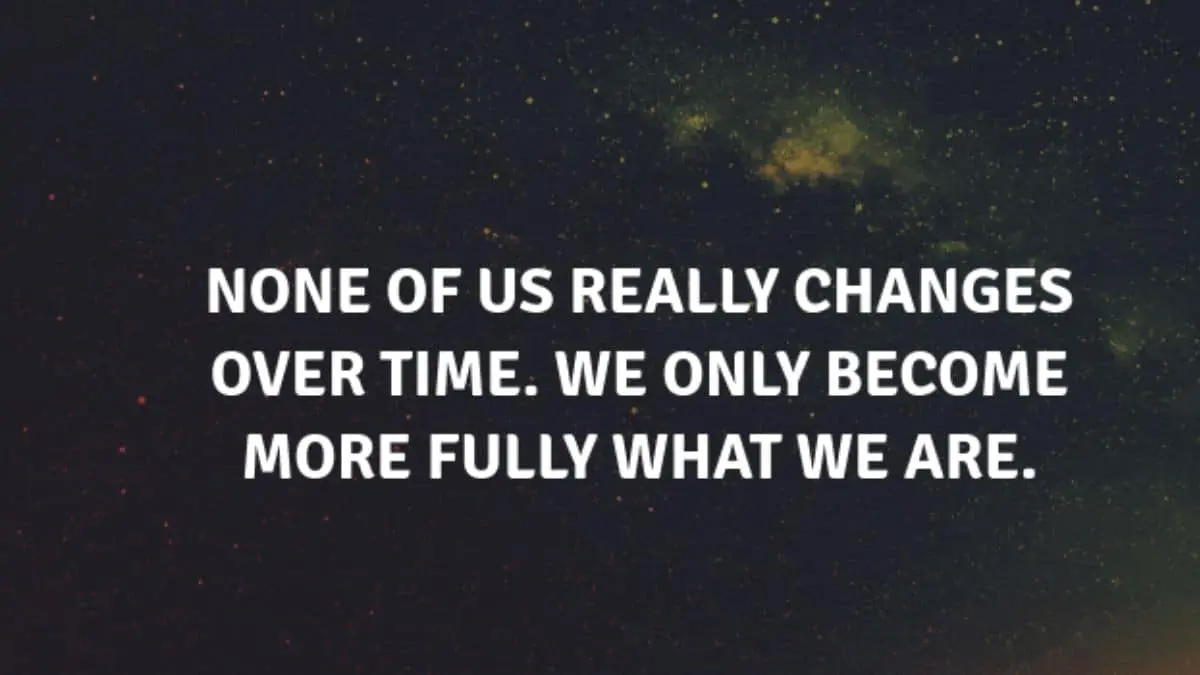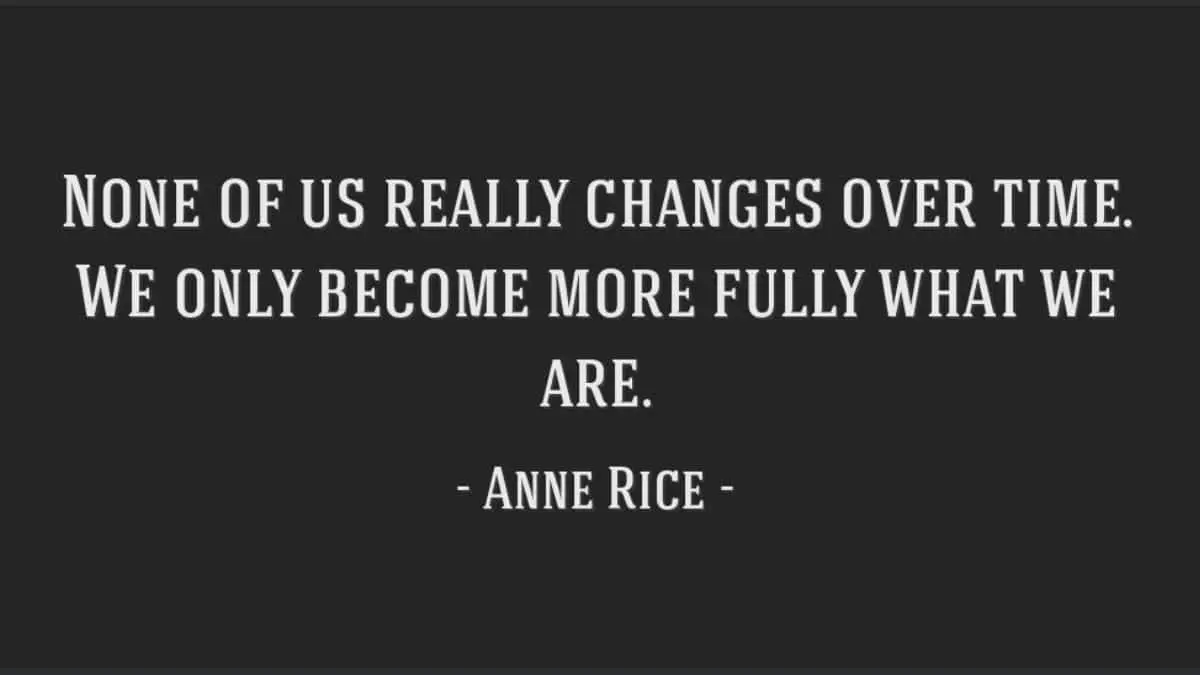The quote “None of us really changes over time. We only become more fully what we are,” often attributed to the author Anne Rice, touches on the deep philosophical idea that our core identity remains consistent throughout our lives, and what we perceive as change is actually the process of uncovering and embracing our true selves. This concept invites us to explore the nature of identity, growth, and self-realization.
The Hidden Meaning: Unraveling the Core Self
At first glance, the quote may seem to suggest a pessimistic view of personal growth, implying that efforts to change are futile. However, a closer examination reveals a more nuanced understanding. The quote does not deny the possibility of growth or development; rather, it suggests that what we consider “change” is not about becoming something entirely different, but about becoming more authentically ourselves.
This idea aligns with the psychological perspective that our core personality traits are established early in life and remain relatively stable. Over time, experiences, challenges, and introspection bring out the latent aspects of our personality, allowing us to fully express who we truly are. In other words, the process of living refines and amplifies the characteristics that define us, rather than altering them completely.
Example 1: The Journey of Personal Values
Consider the case of a person who values kindness and empathy from a young age. Over time, this individual might encounter situations that challenge these values—perhaps a betrayal by a close friend or a difficult workplace environment. Rather than becoming a harsher or more cynical person, they may find that these experiences actually deepen their commitment to kindness. The challenges they face do not change their fundamental nature; instead, they clarify and strengthen it.
As this person grows older, their actions may increasingly reflect their commitment to empathy, perhaps through volunteer work, a career in social services, or simply in the way they treat others in their daily life. What might appear as a change—becoming more involved in helping others, for example—is actually an expression of the values that have always been part of their core identity. Over time, they become more fully the kind, empathetic person they have always been.
Example 2: The Artist’s Evolution
Another example can be found in the life of an artist. Imagine a painter who, early in their career, experiments with various styles, from realism to abstract, in search of their “true” artistic voice. As the years pass, the artist gradually gravitates towards a particular style that feels most authentic to them, perhaps surrealism or impressionism. To the outside world, it might seem like the artist has “changed” their style, but from the artist’s perspective, they have merely discovered and embraced the form of expression that best reflects their inner world.
The artist’s journey is not about becoming a different person but about peeling back the layers of experimentation and external influences to reveal the true essence of their creativity. Their evolution is a process of uncovering and refining their innate artistic identity, not of changing it.

The Paradox of Change: Stability and Transformation
The quote also highlights a paradox in the human experience: the simultaneous presence of stability and transformation. While our core self may remain constant, the way we express that self can change dramatically depending on our life circumstances, relationships, and self-awareness.
This paradox can be seen in the way people often “grow into” themselves as they age. For example, a person who was shy and reserved in their youth might become more confident and assertive as they mature. This outward change in behavior is not necessarily a sign that the person has fundamentally changed, but rather that they have become more comfortable and secure in expressing aspects of their personality that were always there, just beneath the surface.
Example 3: The Late Bloomer
Consider the example of someone who discovers a passion later in life, such as writing, painting, or even starting a new career. To those around them, this might seem like a sudden and dramatic change. However, for the individual, this newfound passion is often the realization of a long-held but previously unexpressed interest or talent. They are not changing into a new person; they are becoming more fully themselves by finally giving voice to a part of their identity that had been dormant.
Conclusion: Embracing the Journey of Self-Realization
In conclusion, the quote “None of us really changes over time. We only become more fully what we are,” invites us to reconsider our understanding of change and growth. It suggests that the journey of life is not about transforming into someone entirely new, but about discovering and embracing the person we have always been. This process of self-realization is a lifelong journey, where every experience, challenge, and reflection brings us closer to our true selves.
Also Read: Too much sanity may be madness — and maddest of all: to see life as it is, and not as it should be!




